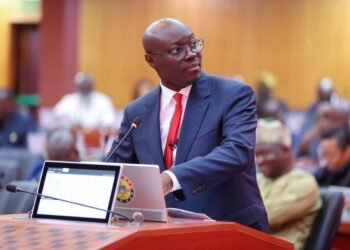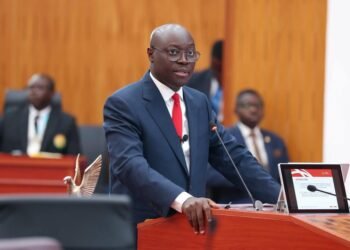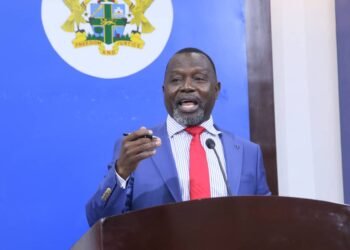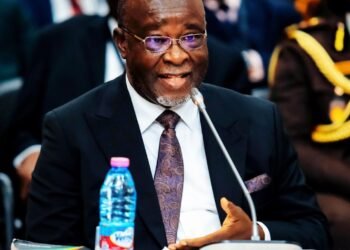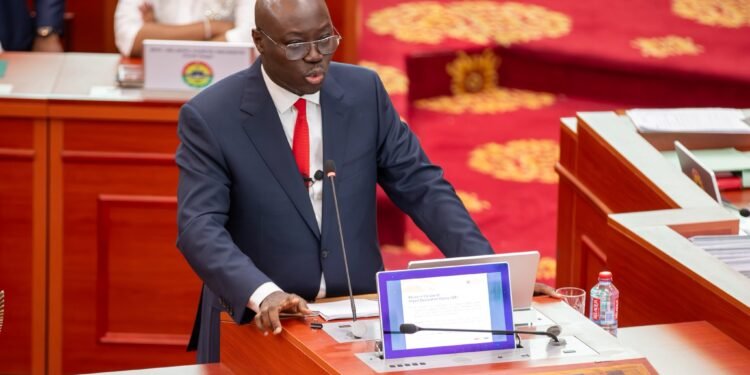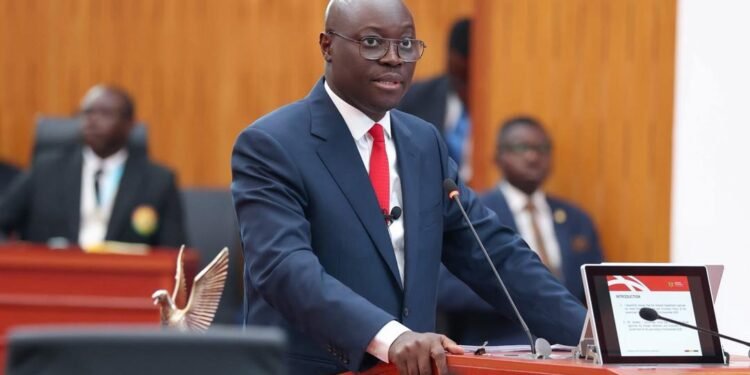Professor John Osae – Kwapong a fellow at the Center for Democratic Development (CDD) has highlighted the impact of Minority Parties ahead of the upcoming December 7, 2024 elections. Professor John Osae-Kwapong began by providing an analysis of Ghana’s political landscape, emphasizing the patterns and historical performance of its elections since 1996.
Prof. Osae-Kwapong observed that in multi-party democracies, particularly those using a first-past-the-post voting system, two major political parties often dominate the scene. This trend is evident in Ghana, where smaller parties have struggled to gain significant traction over the years.
Prof. Osae-Kwapong further referenced data from the 2000 elections and pointed out that the best-combined performance of smaller parties was around 6%, achieved in the first round of voting.
He emphasized that since then, their influence has waned, with their combined share of the vote not exceeding 2% in recent elections.
This consistent underperformance of smaller parties suggests a solidified dominance by the two major political parties in Ghana. Prof. Osae- Kwapong however emphasized that the upcoming 2024 elections will see a dramatic shift from this established pattern.
Prof. Osae-Kwapong further analyzed that unless there is a significant change in the political dynamics or voter behavior, the two-party dominance is likely to persist.
The underlying message is that the political landscape in Ghana has reached a level of predictability, where the smaller parties struggle to break through the stronghold of the major players.
Moreover, Prof. Osae-Kwapong further pointed out the structural challenges that smaller political parties and independent candidates face when competing against Ghana’s dominant parties, which are the National Democratic Congress (NDC) and the New Patriotic Party (NPP).
Prof. Osae-Kwapong highlighted that these major parties have developed extensive administrative structures, reaching from the polling station level to the national level, which significantly strengthens their nationwide presence.
“These are very comprehensive administrative machinery that helps them run the parties nationwide.”
Professor John Osae – Kwapong
Prof. Osae-Kwapong further referenced the most recent poll from Global Info Analytics, which showed that candidates like Alan Kyerematen, when combined with other smaller parties, are polling close to 10%.
He also indicated that former President John Mahama is currently polling at around 48% among committed voters, a decrease from previous levels that could potentially push the election into a second round.
However, Prof. Osae-Kwapong expressed skepticism about the ability of smaller parties to win the presidency outright. He cited data from the Afrobarometer survey, which consistently shows that around 95% of respondents feel close to either the NDC or NPP, despite a majority expressing a desire for more political parties to provide real choice.
“I’ve always found it very interesting reconciling those sentiments…but at the same time, our voting intentions and actual election results seem to be at odds with that.”
Professor John Osae – Kwapong
The Role of the Media in the 2024 Elections
Meanwhile, Madam Nana Yaa Jantuah Secretary of the Convention People’s Party (CPP) addressed the issue of labeling political entities as “smaller parties” based solely on their electoral performance.
Madam Jantuah argued that the classification of a party should not be determined by the percentage of votes it garners, emphasizing that all parties, regardless of their vote share, face the same legal and financial obligations.
“If we are small, then the EC should consider reducing our fees,” she stated, pointing out the financial expectations when smaller parties are required to pay the same fees as their counterparts, the so-called “larger parties”.
Madam Jantuah further acknowledged the declining performance of these parties, particularly since 2000, but cautioned against using electoral performance as the sole metric for defining a party’s size or significance.
Madam Jantuah highlighted how these parties have played pivotal roles in shaping outcomes, such as in 2000 when a coalition of smaller parties helped the New Patriotic Party (NPP) come to power.
Minorities Parties Set Off to Change the Narrative in the 2024 Election
Mr. Nana Ohene Ntow Advisor of the Movement for Change Party highlighted on broader issues concerning the 2024 elections, particularly the challenges faced by independent and smaller parties. He acknowledged the uphill task that lies ahead for the Movement for Change, given the entrenched dominance of the two major parties, the NPP and NDC.
However, Mr. Ohene noted that there is a growing demand for change among the electorate, especially beyond the traditional strongholds of the major parties. “When people get tired, when people get fed up with a certain status quo, certain dynamics for change begin to emerge,” he observed.
Mr. Ohene further pointed out Alan Kyerematen, flag bearer of the Movement for Change’s decision to break away from the NPP and establish the Movement for Change. Mr. Ohene highlighted the significance of the butterfly as a symbol. He argued that no other symbol in nature better represents “transformational change” than the butterfly, a metaphor that aligns with the party’s vision for Ghana.

Despite initial skepticism and mockery from some quarters, Mr. Ohene pointed out that recent polls have shown a notable increase in support for Kyerematen, with some surveys assigning him nearly 8% of the vote—an impressive figure for an independent candidate.
Mr. Ohene emphasized the importance of name and facial recognition in the upcoming elections, noting that Alan Kyerematen long-standing presence in Ghanaian politics, alongside could play a significant role in garnering support.
“These are some of the things that make Alan Kyerematen’s candidature quite significantly different,” he remarked, expressing optimism about the party’s potential impact in the 2024 elections.
READ ALSO: Ghana Government Targets GH¢78 Billion Through T-Bill Issuance in Q3 2024




